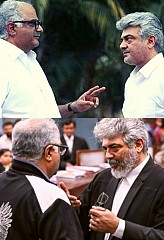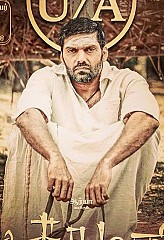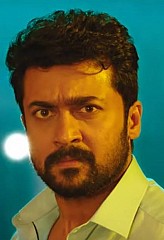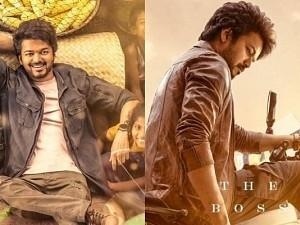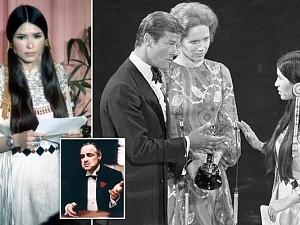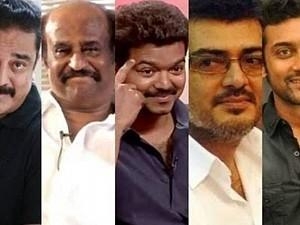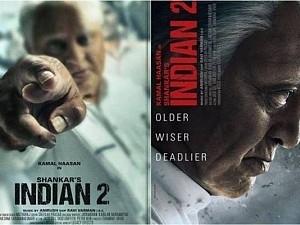If PS-1 is our "Infinity War", please bring us our "Endgame" soon.
Home > Visitor Columns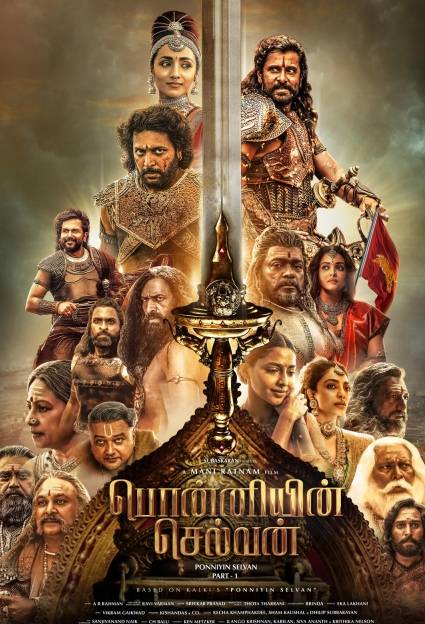
Behindwoods.com isn't responsible for the views expressed by the visitor in this column. The visitor claims that this column is his/her own. If the column infringes any copyrights that you hold, please email us at columns@behindwoods.com.
"Ponniyin Selvan: Part 1" made me draw parallels to another Tamil blockbuster released earlier this year for an odd reason. While most of our "commercial/ mass" cinema relies heavily on how the titular hero is portrayed, we have now had two big-scale movies in which the titular hero is physically absent in the first half. Yes, I am indeed talking about Lokesh Kanagaraj’s "Vikram", which followed the search for the protagonist approach. Akin to Fahad Fazil’s Amar character in the film above, here, too, the story unravels from the point of view of another star, an exemplary Karthi’s Vallavarayan Vanthiyathevan.
Like "Vikram", we keep hearing the mention of the hero quite a few times, yet, we don’t get to see Jayam Ravi’s “Ponniyin Selvan” in full glory for the entirety of the first half. And when we do finally see him, it’s a build-up shot, all right, but it is still relatively low-key for a hero we know will become one of the most celebrated real-life kings in Tamil history. This, not to mention, is the most heroic entry scene among the three stars in the film, and yet it feels too underplayed compared to all the chutzpah that we are recently used to in these extravagant films of late. This is not a criticism but a welcome breath of fresh air.
Maniratnam, who is known for contemporising epic mythology (see "Thalapathy" and "Raavanan") in "PS: 1", retells the story of a classic period novel by utilising contemporary filmmaking techniques instead. He and writers Elango Kumaravel and B. Jeyamohan have woven a screenplay that concentrates solely on the critical moving aspects of Kalki Krishnamurthy’s sprawling five-volume novel. When shot with Ravi Varman’s aesthetic camera work that firmly roots the film, this screenplay provides a new immersive experience that we don’t usually associate with these films. Period dramas are always about the wide shots and the grander, while here, even the wonderfully staged set-pieces feel intimate as there is not even one static frame to cover the full scale of the battlefields. It is as if you jump right into the thick of the action like you are in the middle of the fight yourself. Even the elaborate sets erected by Thotta Tharani are detailed so that they appear grounded, despite being huge in scale.
This contemporary style of making is even evident in the choice of soundtracks composed by A.R. Rahman. The songs, which feel too fresh and too vibrant for a film of this genre, do wonders in moving the story forward. A movie with so many characters needs much exposition and prolonged set-up, but the songs are used as intelligent storytelling devices that help in advancing the plot further. The way "Devaralan Aatam" is shot and choreographed deserves special mention, but the song placement of "Ratchasa Maamaney" to set up a fun chase sequence worked exceptionally well. While on the music, the background music in several instances, like when Trisha’s Kudhavai and Aishwarya Rai Bachchan’s Nandhini meet or when Vikram’s Aditha Karikalan reflects on his tragic past, is some of the best screen elevations that add to the overall experience.
The story is about succession and power struggle, so even if you are unfamiliar with the books, these are relevant and very often shown on-screen. For example, the Nandhini character feels like the inspiration for Andrea’s excellent Chandra in "Vada Chennai", while Prakash Raj as the ailing father and his three children for succession plot is strangely the same as in Maniratnam’s own "Chekka Chevandha Vaanam". And we can also see that the director has carried over some of the styles he handled for that film to manage a multi-star cast here. The style often feels like a "highlights reel" where we keep jumping from one revelation to another story-defining moment. Thankfully, despite the constant plot progression, the film never gets too overstuffed and remains engaging throughout without a dull moment.
The cast’s performances are brilliant as even if they have just one or two high moments in the film, everyone at least manages to stay in memory while you leave the theatre. Karthi can go about flirting with beautiful women and do nothing more, and I can watch it all day. He oozes a joyfulness that we usually don’t see in our macho lead men and vibrates as the heart piece of the entire film. His few interactions with Jayaram’s Azhwarkadiyan Nambi add much-needed humour to the story of blood and vengeance.
Vikram plays a role that he is very well used to – that of a mentally hurt yet physically solid and imposing man and easily conveys the pain and the wrath of the eldest prince. Ravi is a revelation of sorts, as he carries the royalty of Arunmozhi Varman with grace and calmness. But, the women manage to steal the show in the brief moments they tend to get – both Aishwarya Rai and Trisha are convincing as the cold-war-like feuding Nandhini and Kundhavai, and they also appear like a million dollars when on screen. All the other cast members leave a mark here or there, as such is the source material where every character feels necessary for the plot to function.
The best part of the film is the ending. Compressing a dense multiple-volume novel into a two-part movie throws an interesting question about where to split the films. This has to function in such a way that the movie itself serves as a standalone story but still manages to develop intrigue for the part that is coming later. The writers not only work to find a midpoint that works both ways but also add a twist that is sure to click well with the audience. If this is our "Infinity War", please bring us our "Endgame" soon.
- Arunachalam Senthilnathan
arunachalam345@hotmail.com
Please send your column to columns@behindwoods.com.
FACEBOOK COMMENTS
OTHER LATEST VISITOR COLUMNS
RELATED NEWS
- Ponniyin Selvan: "வார்த்தையே இல்லங்க".. 'வந்தியத்தேவன்' கார்த்தி நெகிழ்ச்சி!!
- பிரம்மாண்ட வரவேற்பு பெற்ற 'பொன்னியின் செல்வன் 1'.. இயக்குனர் மணிரத்னத்துக்கு செம Surprise
- "ஏன் PS1 நேரத்துல Naane Varuvean ரிலீஸ்?".. செல்வராகவன் சொன்ன காரணம்.!! Exclusive
- Video : "பொன்னியின் செல்வன்.. ஆதித்த கரிகாலன்க்கு கிடைத்த ரெஸ்பான்ஸ்" விக்ரம் நெகிழ்ச்சி
- "அடேங்கப்பா".. ஒரே நாளில் உலகம் முழுக்க பொன்னியின் செல்வன் 1 செய்த வசூல்.. சாதனை!!
- பா. ரஞ்சித் இயக்கத்தில் விக்ரம் நடிக்கும் 'Chiyaan 61'.. "சும்மா மாஸான தகவலா இருக்கே இது"
- "Ponniyin Selvan 1" வெற்றிக்கு மத்தியில்.. இசைப்புயல் பகிர்ந்த 'செம' நியூஸ்!!.. வாழ்த்தும் ரசிகர்கள்!!
- "பொன்னியின் செல்வன்" பார்க்கும் சுந்தர் C & குஷ்பு.. அதுவும் இந்த ஸ்கிரீன்ல.. இந்த நாட்ல..
- "KING சார் நீங்க".. Ponniyin Selvan PS1 படம் பார்த்துட்டு 'அவரை' புகழ்ந்த கார்த்திக் சுப்புராஜ்! வைரல் ட்வீட்
- வரி வரியாக நன்றி சொன்ன மணி சார்.. GST வரி போடுபவர் என கமெண்ட் அடித்த பார்த்திபன்.!
- "தளபதி மகாபாரதம்.. ராவணன் ராமாயணம்".. தம் படங்களில் இதிகாசங்கள்.. 1st Time மனம் திறக்கும் மணிரத்னம்.!
- PS1 : "நாவல் படிச்சாதான் பொன்னியின் செல்வன் புரியுமா?" - இயக்குநர் மணிரத்னம் Exclusive பதில்.!
- தேசிய விருது பெற கமல் கொடுத்த ராசியான ரோலக்ஸ் வாட்ச் கட்டி வந்த சூர்யா! வைரல் போட்டோஸ்
- Ponniyin Selvan ரிலீஸ் தேதி நம்ம ‘குந்தவை’ த்ரிஷாவுக்கு ரொம்ப ஸ்பெஷல்.. கொண்டாடும் ரசிகர்கள்.!
- "இளரவசர் பொன்னியின் செல்வன் & த்ரிஷா Fit-ஆ இருக்கணும்" - Making-ல் இருந்த கஷ்டம் .. மணிரத்னம் Exclusive
RELATED LINKS
- ആദ്യം Call വന്നപ്പോൾ ഞാൻ കരുതി എന്തായിരിക്കും എന്ന് 😍 |Jayaram
- 🔴LIVE: Ponniyin Selvan "வரலாறு தெரியாத இனம், சுடுகாட்டுக்கு சமம்" - Full Documentary Video
- 3 வருஷ உழைப்பு வீண் போகல, நாங்க ஜெயிச்சுட்டோம்😍 செம Happy ஆக Reunion ஆன வெற்றிக் கூட்டணி| PS-1
- BAAHUBALI vs PONNIYIN SELVAN COMPARISONS - MANI RATNAM'S ANSWER 🔥 INTERVIEW
- Ponniyin Selvan BOOK-ல அப்படி தான இருக்கு, PS 1 படத்துல ஏன் இப்படி? 😍 Ashwin Kakumanu Interview
- Mani Ratnam, Shankar, അടുത്തത് Rajamouli പടം ആണോ ?? 🔥❤️ | Jayaram's Funny Reply
- Vikram 10 Page Dialogue ഒന്നിച്ച് പറഞ്ഞപ്പോൾ ഞാൻ ആശ്ചര്യപ്പെട്ടു 😍😍 | Jayaram
- ആരാണ് പൊന്നിയിൻ സെൽവൻ ?🤔 പൊന്നി നദിയുടെ പുത്രൻ | ❤️❤️ | PS 1 Unlock
- "இத விட பெரிய சந்தோஷம் இல்ல"🙏🏻 சோழர், தமிழரின் பெருமை.. பூரிப்பில் ஆதித்த கரிகாலன்😍
- ഇതായിരുന്നു അന്ന് Suresh Gopi പറഞ്ഞ Camera കഥയുടെ സത്യാവസ്ഥ | Jayaram Opens up
- Box Office-ஐ நொறுக்கிய Ponniyin Selvan.. ருத்ர தாண்டவம் ஆடிய சோழர்கள்🔥 ஒரே நாளில் 80 கோடி
- பொன்னி நதி பாக்கனுமே.. ஈ ஆரி எச மாரி🔥 Chorus-காக அல்ல.. Lyrics-ல இவ்ளோ விஷயம் இருக்கா? FULL DECODE
- "ஈ ஆரி எச மாரி.."🔥 Chorus-காக அல்ல.. பொன்னி நதி Lyrics-ல இவ்ளோ விஷயம் இருக்கா? FULL DECODE
- നോവൽ വായിക്കുന്നവർക്ക് Ponniyin Selvan മനസിലാകുമോ ? | Mani Ratnam
- "பொன்னியின் செல்வன் TITLE ROLE உனக்குனு மணி சார் சொன்னாங்க!" - ஜெயம் ரவி
